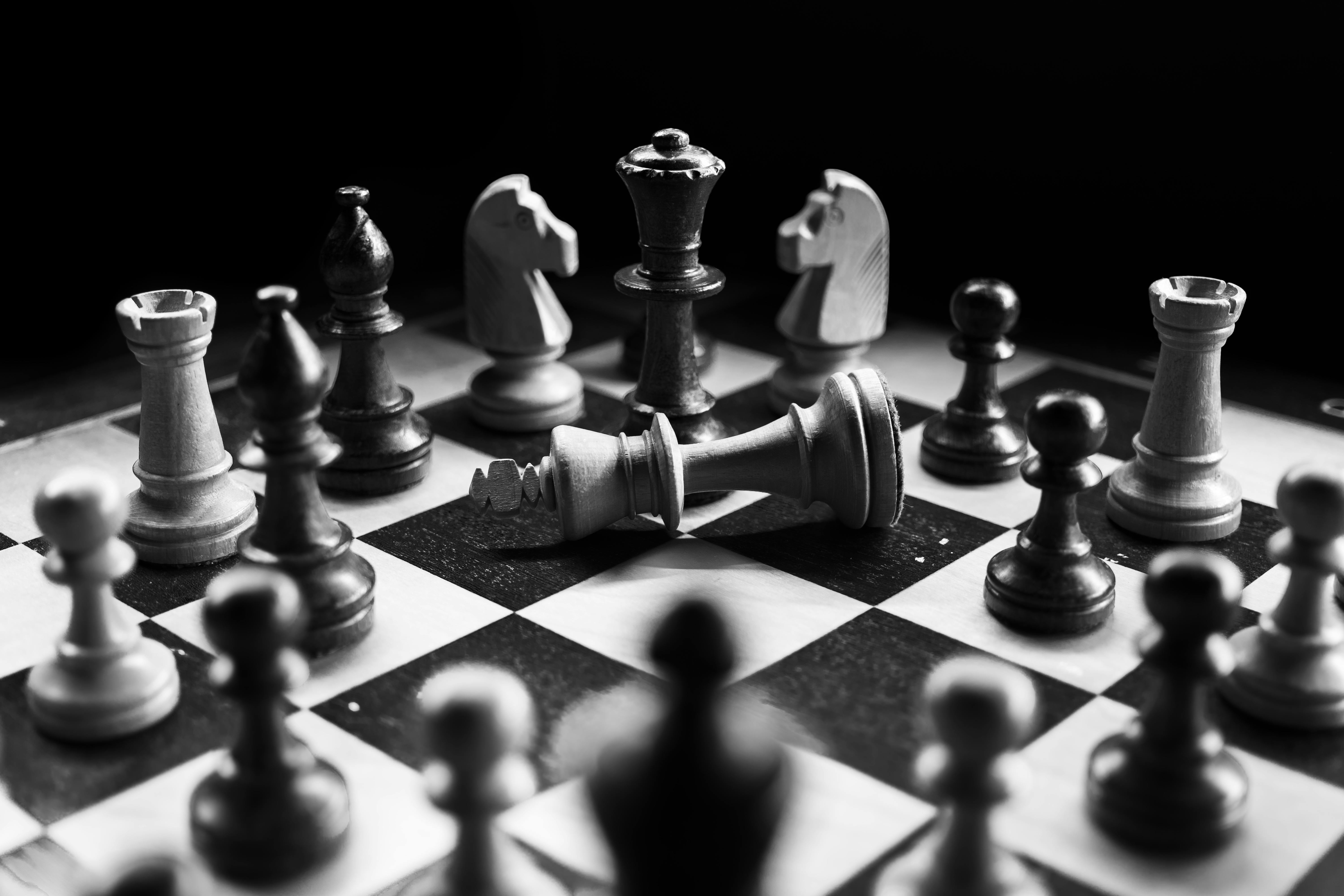Mastering the Chess Clock: A Deep Dive into Time Management in Competitive Chess
In the cerebral world of competitive chess, a small device sits quietly between opponents, silently ticking away the seconds and minutes of each player's turn. This unassuming tool, the chess clock, is as crucial to the game as the pieces on the board. It adds a thrilling dimension of pressure, strategy, and psychological warfare to an already complex battle of minds.

The Evolution of Time Control in Chess
The concept of time control in chess dates back to the 19th century when chess matches could drag on for hours, sometimes even days. The introduction of the chess clock in the 1880s was a game-changer, literally and figuratively. Early chess clocks were mechanical devices with two clock faces, each with its own start-stop mechanism.
As technology advanced, so did chess clocks. The 1970s saw the introduction of digital clocks, which offered more precise timekeeping and the ability to implement complex time controls. Today’s electronic chess clocks can be programmed with a variety of time formats, from classical long games to lightning-fast bullet chess.
The evolution of chess clocks has paralleled the evolution of the game itself. Different time controls have given rise to new chess formats, each with its own strategic considerations. From the thoughtful pace of classical chess to the adrenaline-pumping speed of blitz, the chess clock has become an integral part of the game’s fabric.
The Psychology of the Ticking Clock
The presence of a chess clock adds a significant psychological element to the game. The constant awareness of passing time can induce stress, influence decision-making, and even alter a player’s style of play. Some players thrive under time pressure, making intuitive moves and capitalizing on their opponent’s time trouble. Others may falter, second-guessing their decisions and falling into time traps.
Research in sports psychology has shown that time pressure can lead to decreased cognitive performance and increased errors. In chess, this can manifest as overlooked tactics, hasty moves, or poor strategic decisions. However, the ability to perform under time pressure is a skill that can be developed and honed.
Many top chess players have specific routines and mental strategies to cope with time pressure. These may include deep breathing exercises, visualization techniques, or even physical movements to release tension. Understanding and mastering the psychological aspects of the chess clock can be as important as understanding the game itself.
Time Management Strategies in Chess
Effective time management in chess is a skill that separates good players from great ones. It’s not just about playing quickly, but about allocating time wisely throughout the game. Here are some key strategies employed by chess masters:
-
Opening Preparation: Having a well-prepared opening repertoire allows players to make their early moves quickly and confidently, saving time for more complex middle game and endgame positions.
-
Recognizing Critical Moments: Experienced players learn to identify key positions where extra time spent calculating can yield significant advantages. Conversely, they also recognize when to play more quickly in simpler positions.
-
The Art of Blitzing: In time trouble, the ability to play a series of good moves very quickly can be crucial. This skill, often called “blitzing,” requires practice and a deep intuitive understanding of chess positions.
-
Using the Opponent’s Time: Strong players often make moves that require long thought from their opponents, effectively using their opponent’s clock to gain more thinking time for themselves.
-
Incremental Time Controls: Many modern chess formats include an increment of a few seconds added after each move. Managing this increment effectively can provide a crucial time buffer in the endgame.
These strategies are not just theoretical concepts but practical tools used by chess players at all levels. Mastering them can significantly improve a player’s performance and results.
The Impact of Chess Clocks on Game Strategy
The introduction of chess clocks has had a profound impact on chess strategy and playing styles. In untimed chess, players could afford to spend hours analyzing a single position. With the clock ticking, players must balance depth of calculation with efficient use of time.
This time pressure has led to the development of new strategic concepts. For example, the idea of “practical play” - making moves that are good enough and difficult for the opponent to refute, rather than searching for the absolute best move - has gained prominence in timed chess.
Time trouble, where a player has very little time left on their clock, has become a strategic factor in itself. Strong players may deliberately steer the game towards complex positions when their opponent is short on time, hoping to induce mistakes. Conversely, a player in time trouble might seek to simplify the position, reducing the need for lengthy calculations.
The chess clock has also influenced opening theory. In blitz and rapid chess, surprise openings or early deviations from main lines can be effective, as the opponent has less time to recall or work out the correct responses over the board.
The Future of Time Control in Chess
As chess continues to evolve in the digital age, so too does the role of the chess clock. Online chess platforms have introduced new time control formats, such as the popular 3+2 (three minutes per player with a two-second increment per move) or the extreme 1+0 “bullet” chess.
These rapid time controls have led to a surge in the popularity of speed chess, both online and in over-the-board tournaments. This trend has raised questions about the future of classical chess and the skills valued in chess players. While traditional long-form chess remains the standard for world championship matches, the excitement and accessibility of faster time controls are attracting new players to the game.
Artificial intelligence is also playing a role in the evolution of chess time management. Chess engines can now evaluate positions and suggest moves in fractions of a second, leading to new insights into efficient decision-making processes. Some chess trainers are using AI-assisted analysis to help players optimize their time usage and improve their intuition for quick, accurate play.
Looking ahead, we may see further innovations in chess clock technology and time control formats. Ideas such as “delay” instead of increment, where the clock pauses for a few seconds before starting to count down, or “variable time controls” that change throughout the game, could add new dimensions to competitive chess.
The Timeless Art of Managing Time
The chess clock, once a simple timekeeping device, has become an integral part of chess strategy, psychology, and culture. It has transformed chess from a game of pure calculation into a thrilling test of time management, nerves, and intuition.
Mastering the chess clock is a lifelong journey for chess players. It requires not only a deep understanding of the game but also self-awareness, emotional control, and the ability to make decisions under pressure. These skills extend far beyond the chessboard, making time management in chess a valuable metaphor for life itself.
As we look to the future, the interplay between time, strategy, and human psychology in chess will continue to fascinate players, researchers, and fans alike. The ticking clock remains a constant companion in the chess player’s quest for improvement, adding depth and excitement to this ancient game of kings.






